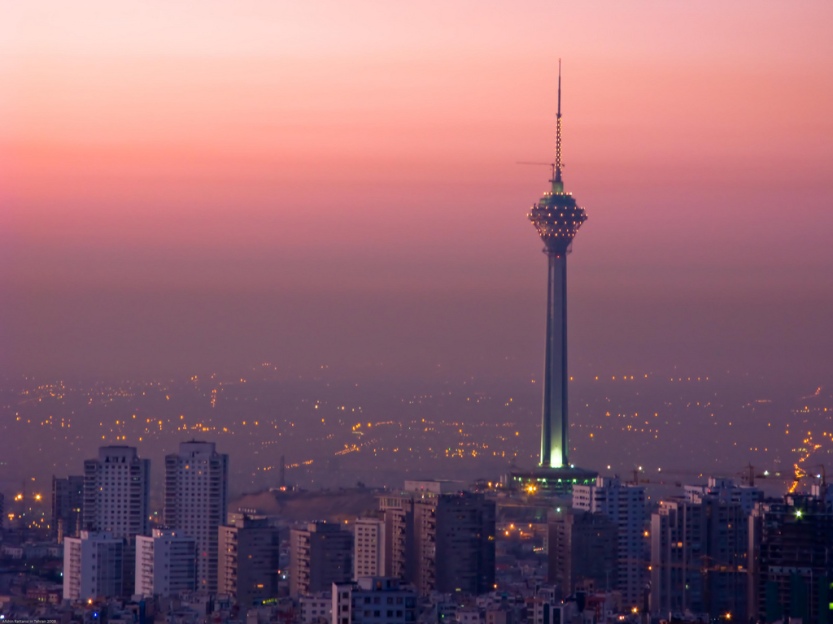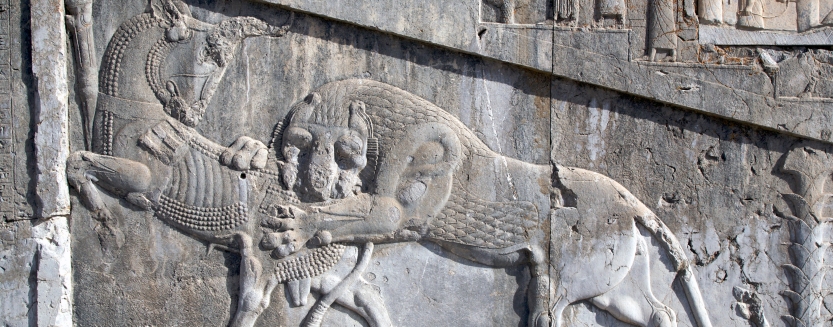Let me give you a brief history lesson, in 550 BC, Cyrus the Great set across to establish the largest empire of its day, claiming lands spanning from Egypt in the west, Turkey in the north, all throughout Mesopotamia and the Indus River in the east. The empire was characterized by economic growth, religious tolerance, rich tapestries, copious amounts of gold and jewels, royal architecture at Persepolis, and overall prosperity. All of this is just the backbone of what makes me proud to be Persian, but there’s so much more within the culture that makes me who I am today.
My parents made certain that I learned first hand the history of Iran and the Persian Empire, taking me back to the mainland often in the summer– whether it be to family beach houses and villas on the countryside or high-rises in the bustling city of Tehran. And when I’d return home to Texas, I’d experience the culture all again, first hand by my Persian parents. I grew up asking for hot tea instead of soda, craving gaz (Pistachio and rosewater nougat) and lavashak (fruit leathers) instead of candy, and making sure not to spill anything on the multiple Persian rugs in my house.
After much thought as to what I should make my next blog post, I thought to write about the things that I relate to most having grown up in the United States with two extremely Persian, Persian parents. For this reason, I learned Farsi before I learned English and spent five minutes before class trying to explain to my teachers how to correctly pronounce my name (yes, I know it’s foreign). As I’m looking back as a twenty year old, I realize that it’s the little things that make me happiest, so without further adieu, I present the 11 things people growing up with Persian parents can relate to.
1) This song was undoubtedly on your iPod throughout your childhood.
Push play and keep reading. Here come the #mems.
2) Your school lunches were the sh/t.
In elementary school, while my best friend would pack a simple sandwich and some Oreos for lunch, I would worry that the smell of my chicken kabob, from sham (dinner) last night, would leak through my lunchbox and invade the classroom. But don’t mind that, my lunch would always be delicious. My fesen-joon will make your turkey pastrami on rye seem like dog food.
3) In addition to normal school, you went to Persian Sunday school.
For all of your friends, Sunday’s consisted of waking up later than usual, watching cartoons all morning, and lounging around. Unlike them, your school week began on Sunday’s when you’d wake up early and your parents would drive you to Persian school to teach you how to read and write in Farsi. It gets even better, my dad signed me up for karate lessons immediately after Sunday school and my mom signed me up for violin lessons #WellRoundedAF.
4) You appreciate the comedic genius that is Maz Jobrani.
No words needed. I saw him twice on tour and own several of his comedy tour DVD’s— no man does stand up like Maziar. Thanks to him, my 2009-2011 Instagram bio read “I’m Persian, like the cat, meow!”
5) The Implied Eh ™
Here’s an preliminary example of universal Persian logic: there’s an implied “eh” before every word. Up to a certain point in time I blamed it on my parents’ accent, after all, learning English after speaking Farsi their entire life must have been a challenge. I’ve now learned to accept that the “eh” before certain words, particularly those beginning with “S”, is eh-nevitable.
6) Summer vacation meant visiting the family in Iran, or California.
For those of us with Persian passports, every June meant traveling to Iran to visit family. There’s nothing more beautiful than Iran in the tabestoon (summer). And it’s more than likely that you have a cousin, aunt, uncle, or grandparents in California. In fact, did you know that Los Angeles (Tehran-geles) is Iran’s second capital?

- Tehran at sunrise, featuring the Milad Tower. Photo courtesy of Flickr user Afshin Rattansi.
7) Your parents yelled to the receiver during long distance phone calls with family back in Iran.
Again, there’s some sort of Persian logic that says ‘thou must talk louder than usual on the phone during long distance phone calls.’ Several hundred Pars calling cards later, no matter how many times my parents have called back home, they never fail to shout into the receiver and make me nearly kar (deaf).
8) “Gooshi (hold on to the line), Golbou wants to talk to you.”
I’m sitting in my room when I hear my mom rushing down the hallway with the phone in her hand, indicating that it’s my turn to talk on the phone. Don’t get me wrong, I absolutely adore my family back in Iran and I would do anything for them, but I never asked to talk on the line with Ameh (Aunt) Firouzeh. Who even is Ameh Firouzeh?
9) With friends, going to your house meant that there would always be food.
I would dismiss this next statement by saying it only happened in elementary school, but it still goes on today during when I have friends over during summer vacation (I’m a third year university student). Your friends love coming over to hang out because your parents would serve them so much food. Are you thirsty? Are you hungry? Do you want some fruit? Are you comfortable?
10) You are the master of tarof (how do I even translate this?)
I grew up watching my parents do this, and I can say I learned from the best. Tarof is a Persian custom of denying your will to please your counterpart. The best example of this is at Persian mehmoonies (parties). The host will offer you more food even after you’ve eaten a full plate of Sabzi-polo, Tahchin, and salad Shirazi, and in order to not be rude and please the host, you will accept another full plate of food and will be forced to eat it. By not denying the request to eat more food, you’re tarofing and as a result, pleasing the host of the party and making them feel good about how much you love their cooking.
11) You can switch between Persian and English like a boss.
Growing up with Persian parents meant speaking Farsi at home and English with friends. Now, switching between Persian and English, and even mixing them together—speaking Farglish—is so rahat (easy). There’s a sweet satisfaction I get when I speak in Persian to communicate privately when I’m out and about with my parents or khahar (sister).

- Relief of lion battling bull at Persepolis. Photo courtesy of Flickr user indigoprime.
The Persian culture is so flush and full of things I have yet to learn, but my favorite thing is sharing it with my friends– and with that, comes a little language barrier. In hopes to clarify some every Persian sayings and phrases, I wrote about the 13 things Persians say that don’t make sense in translation.
Cover photo of the Masjed-e Nasir-al-Mulk, also known as the Pink Mosque, in Shiraz, Iran. Photo courtesy of Flickr user mayhlen.
Categories: persian


I loved it! you are a great writer
Tashakor mikonam! And thank you for reading 🙂
Mersi ghorbunet badjur hal mikonam. I’m half Danish and Persian, your compilation was very enjoyable
I love to hear that, thank you so much for reading, Simon!
Khahesh yasi, if you ever want to get in touch you can apply my email Hald9230@gmail.com into the facebook searchbar! 🙂
تشکر
That song is so…. it is stuck in my head (but I heard it for the first time)
I want to download it in my phone now.